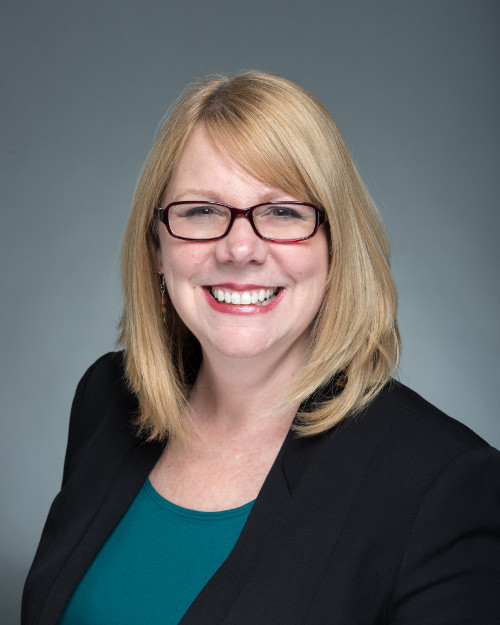A roundup of law and finance startups.
Money talks
About a year ago, three entrepreneurs, all named Matt, sat down in lawyers’ offices with pens and notebooks and said, “We’ll be your Amazon Alexa today.” Their onsite research eventually yielded Tali, a voice application that allows attorneys and accountants to track billable hours. The team aims to pitch the idea to investors in March at the South by Southwest business pitch event.
 Matt Hoiland and Matt Volm, two of the three Tali founders
Matt Hoiland and Matt Volm, two of the three Tali founders
Matt Volm, “the business Matt,” got the idea after learning his wife, an attorney, tracked every six minutes of her work on sticky notes, which she manually transcribed into a billing system. “What if you could use Alexa?” he thought. The next morning he ran the idea past his coworkers at Cambia Health Solutions, “the technology Matts,” Matt Hoiland and Matt A-W. “Before I could finish talking,” Volm says, “they were on a whiteboard.”
 Matt Volm demonstrates the Tali software
Matt Volm demonstrates the Tali software
Volm approached lawyers, accountants, construction management consultants — anyone who billed hours — and discovered the tedious task consumed an average of 15 hours, or $5,000 in potential revenue from client work, every month.
Tali, priced at $30 a month, or six minutes of billable time, soon drew interest from lawyers and contractors around the globe. With voice technology still in its infancy, the Tali team never knows what to expect. Customers address Tali in their hundreds of unique voices, but the application has to produce the same result every time. Amazon also releases constant updates that throw Tali off its game. “It’s difficult if they pivot,” Hoiland says, “and our customers are like, ‘Dude, this thing broke.’”
But the hurdles are worth it, Volm says, for the 200 or so lawyers and accountants who use Tali successfully. It eliminates the worst part of the job.
From the Founder: “[Customers] did the math really quickly,” Hoiland says. “All they have to do is save one six-minute block and it pays for itself.”
Opening Markets
As he was running mobile payment systems at software giant Intuit, Trevor Dryer noticed a persistent problem for small businesses. “I kept hearing how difficult it was to get access to capital,” Dryer says. “The story was always the same.” He founded Mirador in 2014 to connect small businesses to lenders quickly and efficiently.
The current system is full of roadblocks. Most banks use a standard template for loans, whether the amount is $50,000 or $5 million. Small business owners can spend 30 hours applying for a loan and up to eight weeks waiting on processing. Some websites offer speedy processing but charge exorbitant interest, up to 100% APR.
 Trevor Dryer, CEO of Mirador
Trevor Dryer, CEO of Mirador
Mirador markets its software to banks and credit unions in 49 states as an easy way to process loans for small enterprises. After installing the software, Dryer claims, some banks saw a 30% bump in small-business loan applications.
Mirador, which employs 23, has worked with countless business owners. Now Dryer is taking it one step further — collaborating with Eugene-based Palo Alto Software to offer data on small business loan applications to banks. Lenders will be able to use the data to proactively seek out small businesses in need of capital.
From the Founder: “We’re helping our lender customers be ready when the small businesses need them,” Dryer says.
Justice reform
For 25 years, Dana Barbato ran human resources departments in nearly every industry, from medical manufacturing to retail and nonprofits. In every case, internal investigations into sexual harassment or other workplace misconduct were “fearful, chaotic processes,” Barbato says. The investigations were required by law, but Barbato and other HR professionals often didn’t know where to start or what questions to ask.
 Dana Barbato, CEO of Investipro
Dana Barbato, CEO of Investipro
So in 2015 Barbato launched Bend-based InvestiPro, a software platform that guides HR departments through the process step by step, from complaint to final decision. The program, Barbato says, brings standardization and rigor to the legal minefield that investigations can become. While the law still requires a human to make the final judgement, the software tells investigators what information to look at, what legal standards to use and when to call a lawyer.
“They become more of the facilitator of the investigation. It creates a much more consistent process,” Barbato says. InvestiPro’s roster of clients includes WinCo Foods, public agencies and companies with a one-person HR department.
From the Founder: “It provides more than suggested guidance and best practices,” Barbato says. “It gives you the actual questions to ask.”
A version of this article appears in the March 2018 issue of Oregon Business
To subscribe to Oregon Business, click here.


